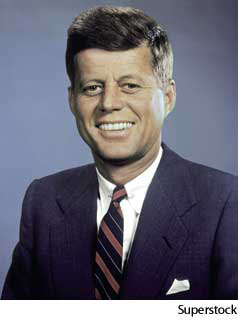<iframe src="https://search.credoreference.com/search/all.embed?institutionId=6063&searchPhrase=kennedy%20john_1917_1963" width="100%" height="500" style="border: 0;" allowfullscreen="allowfullscreen"></iframe>
Sites authorized for seamless embedding:
- bing.com
- yahoo.com
- credo.link
- search.aol.com
- search.xfinity.com
- ask.com
- t.co
- t.umblr.com
- search.myway.com
- m.facebook.com
- r.search.yahoo.com
- free.facebook.com
- search.yahoo.co.jp
- uk.search.yahoo.com
- fr.search.yahoo.com
- search.yahoo.com
- literati.libguides.com
- search.ask.com
- l.facebook.com
- pinterest.com
- youseemore.com
- mail.google.com
- research.easybib.com
- uk.ask.com
- staff
- search.tb.ask.com
- search.aol.co.uk
- ask.reference.com
- int.search.tb.ask.com
- int.search.myway.com
- search.mysearch.com
- credoreference.com
- eds.a.ebscohost.com.ezp.lib.unimelb.edu.au
- cn.bing
- eds.b.ebscohost.com.ezp.lib.unimelb.edu.au
- wils.org
- eds.b.ebscohost.com.ezp.tua.edu.au
- ib.jit.edu.cn
- eds.b.ebscohost.com.newdc.oum.edu.my
- lib.tust.edu.cn
- eds.b.ebscohost.com.proxy.library.lincoln.ac.uk
- eds.a.ebscohost.com.librarymylesroches.idm.oclc.org
- search.ukr.net
- uk.pinterest.com
- eds.a.ebscohost.com.newdc.oum.edu.my
- live.com
- eds.b.ebscohost.com.laureatech.idm.oclc.org
- lib.nuist.edu.cn
- eds.b.ebscohost.com.libproxy.bryantstratton.edu
- findplus.cn
- eds.a.ebscohost.com.proxy.library.lincoln.ac.uk
- ru.pinterest.com
- eds.b.ebscohost.com.proxy-kutztown.klnpa.org
- lib.just.edu.cn
- eds.a.ebscohost.com.ezproxy.lakelandcc.edu
- cn.bing.com
- en.njtech.findplus.cn
- lib.hhit.edu.cn
- en.whu.findplus.cn
- en.nankai.findplus.cn
- search.library.smu.edu.sg
- en.buaa.findplus.cn
- en.ruc.findplus.cn
- lib.xzit.edu.cn
- lib.xust.edu.cn
- eds.a.ebscohost.com.gate1.inist.fr
- eds.a.ebscohost.com.ezproxy.jnu.ac.in
- eds.a.ebscohost.com.proxy.kobson.nb.rs
- library.ubd.edu.bn
- library.njucm.edu.cn
- eds.b.ebscohost.com.px.units.it
- en.aust.findplus.cn
- en.bjmu.findplus.cn
- en.hunnu.findplus.cn
- lib.uva.nl
- eds.b.ebscohost.com.gate1.inist.fr
- credoreference.libguides.com
- literati.credoreference.com
- login.credoreference.com
- en.aiai.findplus.cn
- en.njfu.findplus.cn
- es.search.yahoo.com
- en.xtu.findplus.cn
- lib.ntu.edu.cn
- en.tjnu.findplus.cn
- en.tjcu.findplus.cn
- resources.igi-global.com
- en.shl.findplus.cn
- eds.a.ebscohost.com.ezproxy.uosc.edu
If you'd like to post on other sites, please contact
support@credoreference.com
Instructions for using Embed codes.
Embedding articles is subject to our Terms of use.


